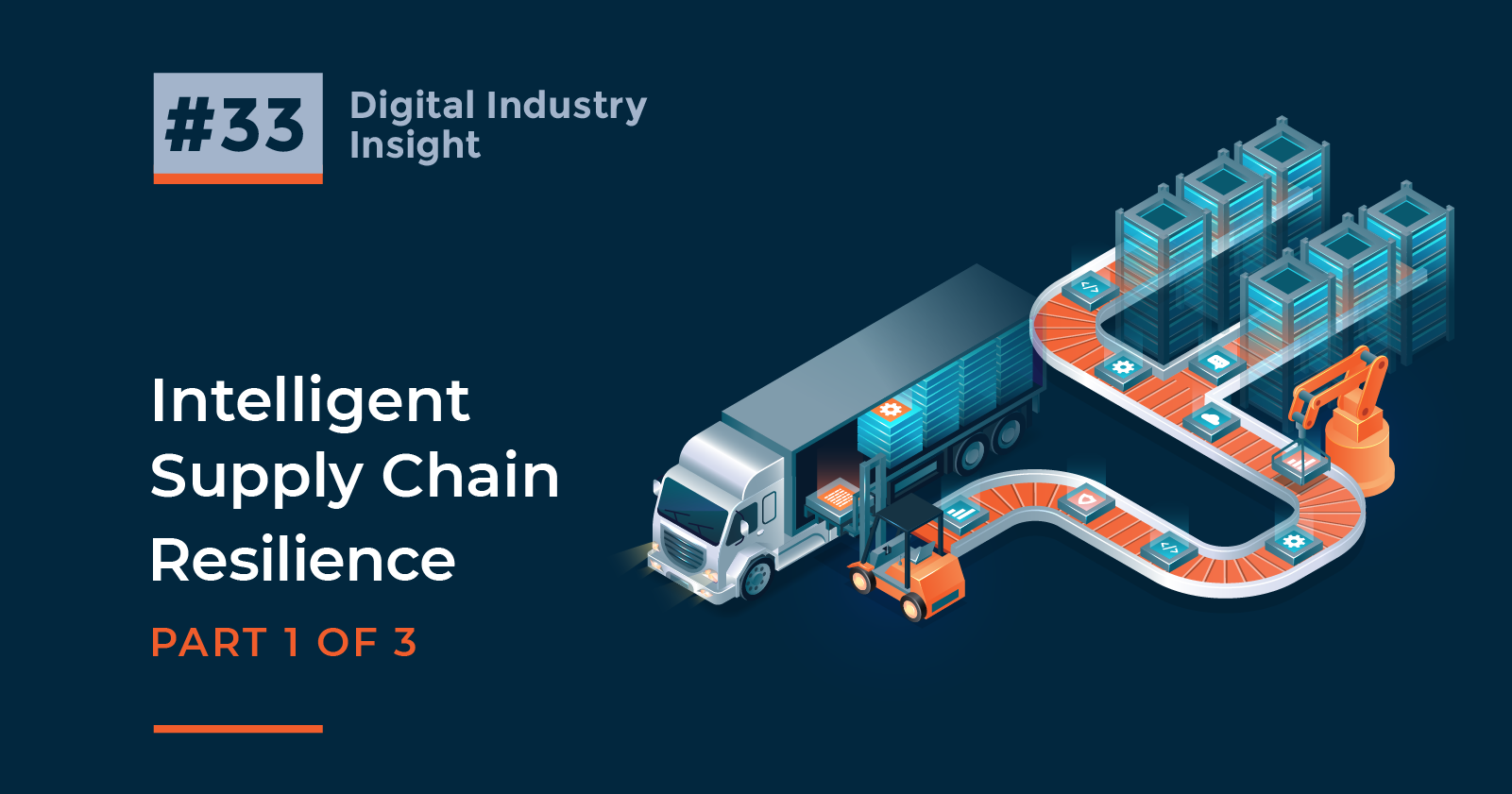Oct 1, 2020
| 5 min read
Digital Industry Insight #33

What is resilience and why is it important?
According to Merriam-Webster’s dictionary, one of the definitions of resilience is: an ability to recover from or adjust easily to misfortune or change.
The great pandemic of 2020 starkly highlighted the need for supply chain resilience. According to the World Trade Organization, the pandemic could result in anywhere from a 13% to a 32% decline in global trade for 2020. Sudden lockdowns caused shortages of toilet paper and hand sanitizer early on, but even today we are seeing shortages of critical parts impacting the supply of bicycles, desks and other items as a result of marked changes in consumption and behavior patterns. Some supply chains have been able to adjust to the new environment while others still struggle to adapt to rapid change.
Despite guidance from organizations like the Federal Emergency Management Agency (FEMA)’s Supply Chain Resilience Guide, companies across all industries have been challenged by the economic lockdowns, travel restrictions and trade disputes of 2020. Supply chains are also notoriously complex. Dun & Bradstreet produced a study of Fortune 1000 companies and found that 162 had one or more Tier 1 suppliers in the Wuhan region of China, which seems manageable, but looking deeper the study found that 938 of the Fortune 100 had Tier 2 suppliers there.
Recent research from the Association for Supply Chain Management clarifies what makes a company resilient, analyzing data from 1,800 publicly held firms with more than $200M in sales in five industries: extraction, manufacturing, communications, trade, and services. The study compared the performance from 2008 to 2009 with how the companies were doing before pre-recession (2005 to 2007) as well as immediately afterward in 2010. Organizations that invested in supply chain excellence by being leaner (having lower levels of working capital and less inventory), maintaining a variable cost structure (typically more labor intensive than asset intensive), and investing in early warning systems (monitoring and risk management capabilities) performed better than competitors in every industry studied.
A conclusion from the study was applied to the 2020 Covid-19 pandemic and found that:
According to Amit Gautam of Innover, supply chain resilience depends on two complementary factors:
To achieve resistance and recovery capacity, supply chains need to build three critical components:
How can you make your supply chain and your business more resilient?
Remember, it’s not necessarily about avoiding any disruptions, any business with a multi-national footprint and sophisticated value chain will likely face some exposure to sudden change. It’s all about how quickly you can adjust and how robustly you can recover.

Please join Momenta for a very special webinar that explores how to anticipate disruption, and better prepare your supply chain to be resilient.

Unlock the Power of Digital! Momenta encompasses leading Strategic Advisory, Talent, and Ventures practices for Digital Industry. Connect with us to find out more about our three practices and how we can deliver digital value for your company.